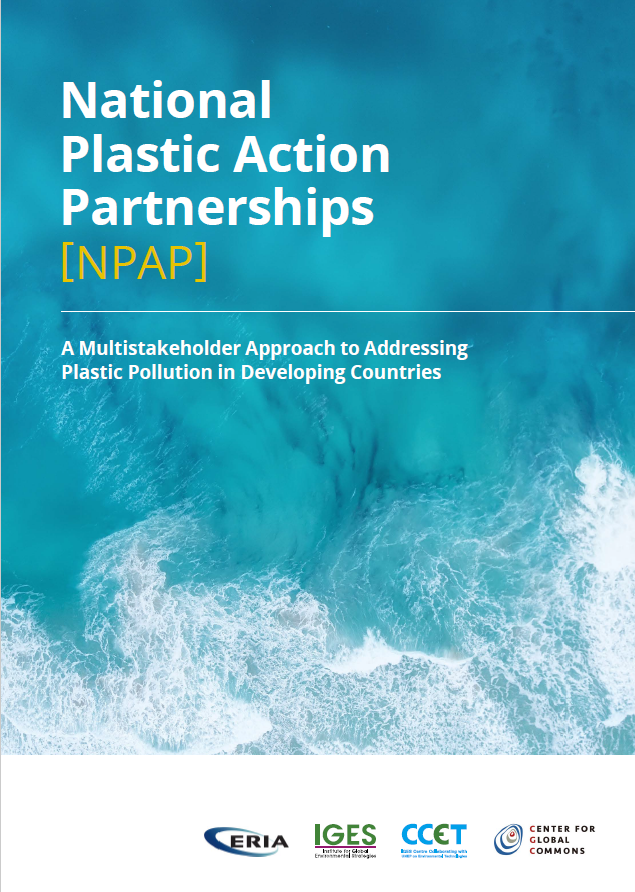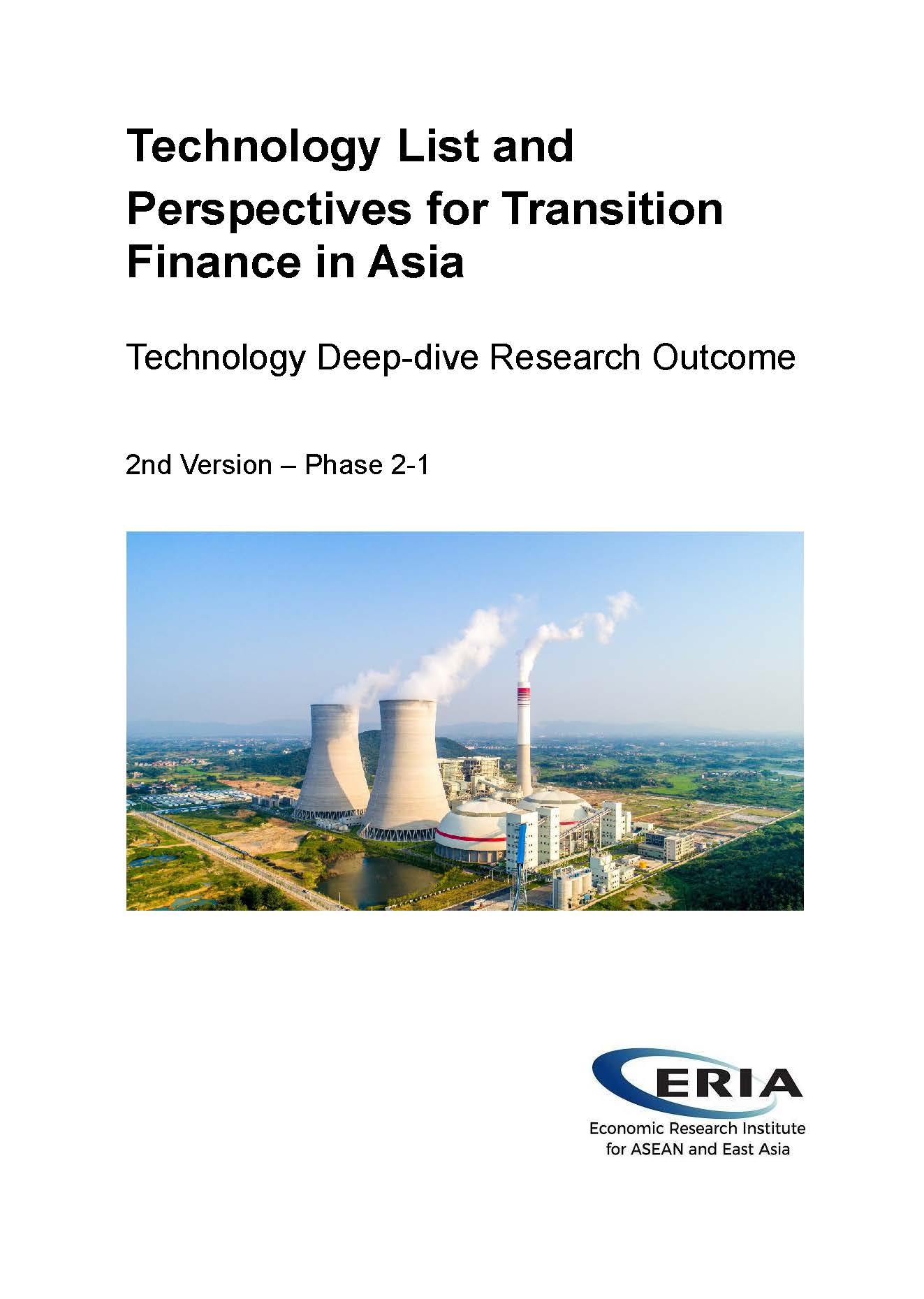National Plastic Action Partnerships (NPAP): A Multistakeholder Approach to Addressing Plastic Pollution in Developing Countries

Print Article:
This report by the Institute for Global Environmental Strategies (IGES) and Center for Global Commons at the University of Tokyo (CGC), prepared with the support of RKC-MPD ERIA, aims to see what can be learned from National Plastic Action Partnerships (NPAP) initiative in Indonesia, Ghana, and Vietnam. It describes the challenges of plastic pollution and the need for Multi-Stakeholder Partnerships (MSP) and describes an emerging MSP process called Global Plastic Action Partnership (GPAP) and its sister NPAP counterparts in developing countries. NPAP aligns the divergent interests of various stakeholders such as perspectives, targets, priorities, and timelines of all stakeholders, thereby trying to engineer change. In this context, the following questions are examined in this report:
-
How can Multi-Stakeholder Partnerships manage plastic pollution in developing countries?
-
What are the challenges?
The report available in RKC-MPD website:
NPAP: A Multistakeholder Approach to Addressing Plastic Pollution in Developing Countries




